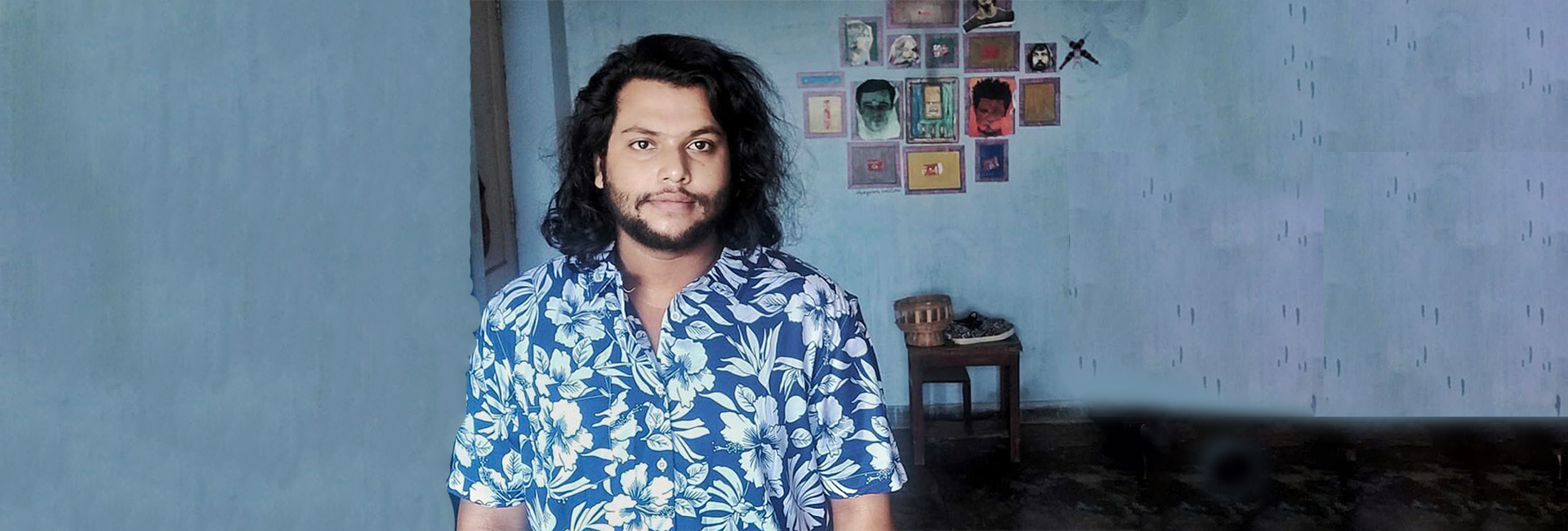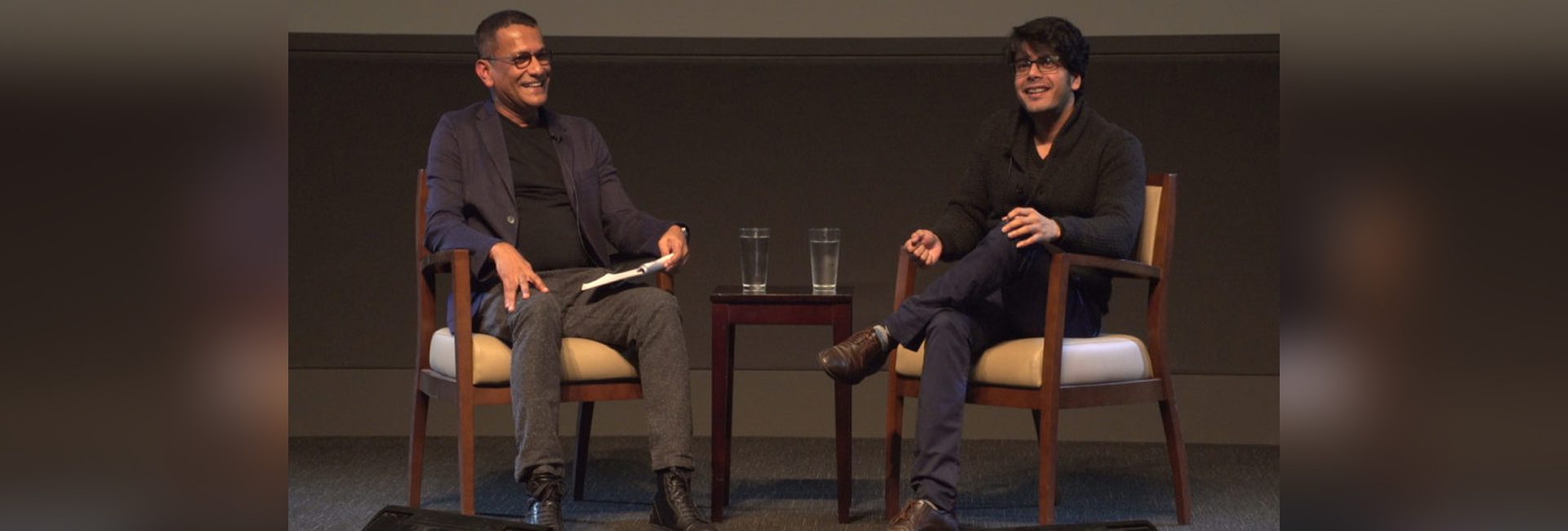(Jan 13, 2022) Cheers erupted from the RRR table as actor Jenna Ortega said the words every Indian was hoping to hear. “And the award goes to, Naatu Naatu, RRR.” Looking a little like a deer caught in the headlights, a visibly flustered MM Keeravani clutched his Golden Globe with both hands, saying nervously, “I’m much overwhelmed with this great moment happening.” It was a great moment indeed, for Keeravani himself, the RRR team, for Indians around the world and for every underdog everywhere. An underrated genius had finally received his due on a truly global platform, winning one of the most coveted awards in the world.
He had hoped to break tradition, he said, by not dedicating his award to someone else, but being up on stage himself, he said, “I’m going to repeat the tradition because I mean my words.” He went on to thank the RRR team, starting with his brother and director of the film, SS Rajamouli, for his “constant trust and support,” choreographer Prem Rakshith, singer Rahul Sipligunj and Kala Bhairav (Keeravani’s son) and actors Ram Charan and NT Rama Rao JR, who “danced with so much stamina.” After the ceremony, Keeravani and Rajamouli even performed the hook step that made the song so popular.
Naatu Naatu was released in April 2022, to much social media hype – Lahari even predicted it would be the ‘Dance Number of the Decade’. Two months later, Korean pop music icons BTS released their own choreography to the song, skyrocketing it to global fame. According to media reports, the Global Indian created around 20 compositions for the song, with the final version chosen by Rajamouli and other members from the RRR team.
Early talent
A steady stream of RD Burman hits played through the day in Keeravani’s childhood home in Kovvur, Andhra Pradesh. His father, Koduri Siva Shakti Datta, is a painter, lyricist and screenwriter and Keeravani, who grew up steeped in fine arts and the glamour of the Telugu film industry, displayed an early interest in music. His inclinations were appreciated and encouraged at home and he began learning to play the violin at the age of four.
Keeravani showed extraordinary talent even then and by the age of 10, was going on tour with the Pranalingam Accordion Party, a travelling band from Kakinada, for whom he played the violin. He was their piece de resistance, the young prodigy who won his audience’s hearts with his solo rendition of Ek Pyaar Ka Nagma Hai.
A rocky start and a big break
Keeravani began his career in 1987, working as an assistant to composers K. Chakravarthy and C. Rajamani. His debut, which came in 1990 with TSBK Moulee’s Manasu Mamatha, went out with a whimper, however, as the film was never released, leaving Keeravani’s talent unnoticed. His thirty-year tryst with Indian cinema has been something of a comedy of errors, aided in part by the composer himself, and his insistence on having three names. “Stephen King had two names. I have three,” he said, in a Rediff interview back in 2004.
As it happened, his great admiration for Stephen King had its part to play in his first big break. Director Ram Gopal Varma, who had heard some of Keeravani’s work, was toying with the composer’s name for his 1991 film, Kshana Kshanam. The deal was clinched with Varma caught sight of Keeravani sitting quietly by himself in his Chennai studio, his nose buried in a Stephen King novel. “If you like Stephen King, that means we can work together,” he told him.

Composer MM Keeravani
The breadwinner goes to Bollywood
Varma, apparently, advised Keeravani to be selective and not take every film that came his way. Pickiness, however, was a luxury the composer simply could not afford. Life was more or less hand-to-mouth back then – in those early days, Keeravani, who lived in a joint family of around 30 people, was the sole breadwinner. The once-wealthy zamindar family had descended into hard times and when Keeravani started out, his cousin, Rajamouli, was still a student. So, he took every job he could get, working with Rajamani and K. Chakravarthy. “There used to be 75-90 Telugu movies produced in a year, and Chakravarthy did 90 percent of those films,” Keeravani told Film Companion. “It was work 365 days a year, without a holiday.”
Trained in both Western and Indian traditions, his work was always a seamless blend of both styles. And while the Telugu film industry put food on the table, Bollywood afforded him, or so he thought, a chance to be artistic. He went on to compose Tum Mile Dil Khile in Criminal, Gali Mein Aaj Chand Nikla in Zakhm, Jeevan Kya Hai in Is Raat Ki Subah Nahin and Jadoo Hai Nasha Hai in Jism. “Songs in Telugu and other languages are my bread, Hindi songs are my butter,” he remarked to singer Sonu Nigam, when he was a guest on the reality show Saregama.
‘A man must have three names’
By the late 1990s, MM Keeravani was an established name in the Telugu film industry, starting with his work for Annamayya (1997), which won him a National Award and several state accolades. During that decade, he also managed to set in motion a veritable comedy of errors, thanks to his many names – he goes by MM Keeravani in the Telugu industry, MM Kreem and Margatha Mani, his actual name, which he uses in the Tamil and Malayalam film industries. In Bollywood, he moved like a spectre, the name MM Kreem was a mystery to most. It resulted, as one might imagine, in a lot of confusion.

MM Keeravani with SS Rajamouli, Ram Charan and NT Rama Rao Jr
One story involves media baron Ramoji Rao, who had worked with Keeravani on a number of films. However, the outspoken Keeravani had done the unthinkable – he had a disagreement with the director and wanted to quit. Rao was angry, composers didn’t get this much of a say, usually. He told his associates that it was time to replace him, asking them to find the man behind Sur, which had been done by “some guy called MM Kreem,” only to find out that they were the same person. In Chennai, Nida Fazli spent a while wandering through the composer’s studio asking for a man named ‘Kreem’, to people who only knew him as Keeravani.
Renunciation
He might appear reserved and mild-mannered, but Keeravani has had his share of rebellion and renunciation alike. An ardent devotee of Lord Shiva, he also had a guru. When he was 33, with his first child on the way, his guru advised him to take sanyaas for a year-and-a-half. Keeravani agreed, sacrificing the comforts of home to live like a hermit and eat only the most spartan, vegetarian food. He even missed the birth of his son and gave his earnings over to charity.
‘A student for life’

His cousin, SS Rajamouli, has undoubtedly played kingmaker in Keeravani’s life – all his songs for the director have dominated the billboards. However, the composer has had some very successful collaborations with industry heavyweights like Ram Gopal Varma, Mahesh Bhatt and Kumar Sanu, to name a few. He has many inspirations too – he reveres the iconic Ilaiayaraaja, the Burmans, Bhimsen Joshi and is a “great fan of the epic movie Fiddler on the Roof. I get inspired by whatever happens around the world, especially in the West,” he told Indian Express. Trained in Indian and Western classical traditions, he man ages to produce a unique signature style to go with each of his monikers. “My inspiration comes from all the great stalwarts and maestros from all around the globe, from John Williams to Nusrat Fateh Ali Khan, all of them. I believe I’m a student for life.”
Also Read: Coachella to Louis Vuitton: When India took over global pop culture in 2023



